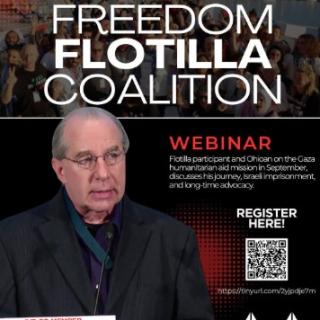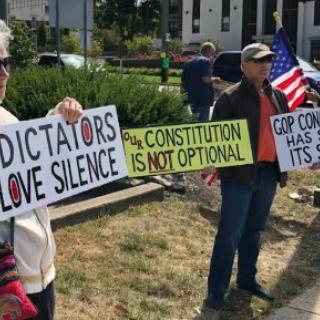ACTION ALERT: Phone Zap
BACKGROUND: Prisoners in struggle at Toledo Correctional Institution (TCI) have requested your assistance. Their cage is being converted into a maximum security concentration camp. People sent to maximum security prisons are subject to prolonged solitary confinement for a minimum of two years. According to the UN Special Rapporteur on Torture, "some studies said confinement after seven days created a long-term psychological impact.." We view the practice of solitary confinement as a form of psychological torture and torture is prohibited under international humanitarian law. Therefore, we need to ban the practice of solitary confinement.
TCI officials are also engaged in the practice of free speech retaliation and this practice is a violation of the U.S. Constitution. TCI officials are retaliating against TCI prisoners who speak out against the use of solitary confinement. TCI guards have also violated first amendment rights of prisoners by censoring their mail on the basis of political perspective. This censorship practice is illegal.
TAKE ACTION: TCI prisoners in struggle have requested that outside supporters call 614-752-1603. You may also call 614-752-1765 or 614-752-1784 to speak with ODRC’s legal services division. This division claims it will take legal action to protect first amendment rights of TCI prisoners if enough people call to complain about the censorship of prisoner mail. Please call during normal business hours, Mon-Fri, 9am-5pm EST.
SAMPLE SCRIPT: “I am calling in concern of prisoners at TCI. They have been subject to free speech retaliation and discrimination through the illegal practice of mail censorship. This a violation of their first amendment rights and we demand your department takes the necessary steps to protect the free speech of prisoners at TCI.”
_ _ _ _ _ _ _ _ _ _
ADDITIONAL INFO: Muckrock.com published a list of print materials currently banned from Ohio prisons. Click the following link to download the list https://goo.gl/S3YzqL
FOR MORE INFO on free speech, please read the following excerpt from The Incarcerated Worker:
The First Amendment to the U.S. Constitution protects free speech. Regulations that permit the government or its employees to discriminate on the basis of the content of the message cannot be tolerated under the First Amendment.
Further, prisoners retain free speech rights. Thought control, by means of prohibiting beliefs, would not only be undesirable but impossible (ii). Fact of confinement and needs of the penal institution impose rational limitations on prisoner free speech rights (iii), but those restrictions must have a “valid, rational connection” to “legitimate penological interests” not related to the content of ideas (iv). Regulations and practices can only be justified when the practice “furthers an important or substantial government interest unrelated to the suppression of expression” (v).
This means you cannot legally suppress the expression of ideas. Prison walls do not serve to form a barrier separating prisoners from the protections of the constitution (vi) Core political speech is most-zealously guarded and there is a public interest “in having free and unhindered debate on matters of public importance--the core value of the Free Speech Clause of the First Amendment” (vii).
Thus, exclusion of printed material on the basis of its political perspective amounts to free speech retaliation and discrimination, which is illegal (viii).
CASE CITATIONS: i, Reagan v. Time, Inc, 468 U.S. 641, 648-49, 104 SCt 3262 (1984). “[T]he fact that society may find speech offensive is not sufficient reason for suppressing it. Indeed, if it is the speakers’ opinion that gives offense, that consequence is a reason for according it constitutional protection.” Hustler Magazine, Inc v. Falwell, 495 US 45,46, 108 SCt 876, 882. The government may not prohibit the expression of an idea simply because society finds the idea itself offensive or disagreeable, U.S. v. Eichman, 496 US 310, 319, 110 SCt 2404 (1990). “[A]bove all else, the First Amendment means that government has no power to restrict expression because of its message, its ideas, its subject matter, or its content.” Police Dept. Of Chicago v. Mosley, 408 US 92, 95, 92 SCt 2286, 2290 (1972). ii, Jones v. North Carolina Prisoners Labor Union, 433 US 119,97 SCt 2532 (1997) iii, Pell v. Procunier, 417 US 817, 822, 94, Set 2800, 2804, (1974) iv, Turner v. Safely, 482 US 78, 107



